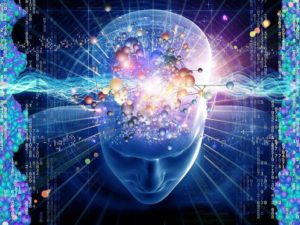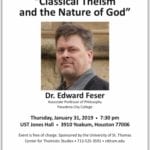On the Nature of True Liberty (7-9)
7. Such, then, being the condition of human liberty, it necessarily stands in need of light and strength to direct its actions to good and to restrain them from evil. Without this, the freedom of our will would be our ruin. [By choosing to deprive ourselves of the fullest good we ruin our freedom. Here’s why:…] First of all, there must be law; that is, a fixed rule of teaching what is to be done and what is to be left undone. This rule cannot affect the lower animals in any true sense, since they act of necessity, following their natural instinct, and cannot of themselves act in any other way. On the other hand, as was said above, he who is free can either act or not act, can do this or do that, as he pleases, because his judgment precedes his choice. And his judgment not only decides what is right or wrong of its own nature, but also what is practically good and therefore to be chosen, and what is practically evil and therefore to be avoided. In other words, the reason prescribes to the will what it should seek after or shun, in order to the eventual attainment of man’s last end, for the sake of which all his actions ought to be performed. This ordination of reason is called law. [Law in a different sense than we are used to…natural law…acting in accordance with that which is perfective or fulfilling to our natures. To choose not to reason in a matter of importance is its own problem.] In man’s free will, therefore, or in the moral necessity of our voluntary acts being in accordance with reason, lies the very root of the necessity of law. Nothing more foolish can be uttered or conceived than the notion that, because man is free by nature, he is therefore exempt from law. Were this the case, it would follow that to become free we must be deprived of reason; whereas the truth is that we are bound to submit to law precisely because we are free by our very nature. For, law is the guide of man’s actions; it turns him toward good by its rewards, and deters him from evil by its punishments.
the ideal aspects of what should be done and the nature of true liberty. There are of course political implications though, which are discussed in other encyclicals, but common sense might tell you what they are by reading this one.
8. Foremost in this office comes the natural law, which is written and engraved in the mind of every man; and this is nothing but our reason, commanding us to do right and forbidding sin. [Natural law is in all other creatures as well, but because we have intellect and will, it is slightly different with us.] Nevertheless, all prescriptions of human reason can have force of law only inasmuch as they are the voice and the interpreters of some higher power on which our reason and liberty necessarily depend. For, since the force of law consists in the imposing of obligations and the granting of rights, authority is the one and only foundation of all law – the power, that is, of fixing duties and defining rights, as also of assigning the necessary sanctions of reward and chastisement to each and all of its commands. [Some people are reeling over backwards in reading this or just disgusted. It is what it is.] But all this, clearly, cannot be found in man, if, as his own supreme legislator, he is to be the rule of his own actions. [The difference between the last two phrases is important. There is a difference between being your own supreme legislator and making yourself the rule by which and how you act.] It follows, therefore, that the law of nature is the same thing as the eternal law, implanted in rational creatures, and inclining them to their right action and end; and can be nothing else but the eternal reason of God, the Creator and Ruler of all the world. To this rule of action and restraint of evil God has vouchsafed to give special and most suitable aids for strengthening and ordering the human will. The first and most excellent of these is the power of His divine grace, whereby the mind can be enlightened and the will wholesomely invigorated and moved to the constant pursuit of moral good, so that the use of our inborn liberty becomes at once less difficult and less dangerous. [Grace helps us choose the good.] Not that the divine assistance hinders in any way the free movement of our will; just the contrary, for grace works inwardly in man and in harmony with his natural inclinations, since it flows from the very Creator of his mind and will, by whom all things are moved in conformity with their nature. As the Angelic Doctor points out, it is because divine grace comes from the Author of nature that it is so admirably adapted to be the safeguard of all natures, and to maintain the character, efficiency, and operations of each.
We speak of ‘laws of science’ such as gravity that say if you drop this pencil, it will fall to the ground given the nature of gravity. The same is true with laws of nature–if a thing tends to act in accordance with its nature it will tend to be fulfilled and on the track towards its perfection. The more it obeys laws of nature the more it will become good.
9. What has been said of the liberty of individuals is no less applicable to them when considered as bound together in civil society. For, what reason and the natural law do for individuals, that human law, promulgated for their good, does for the citizens of States. [Here politics come on the stage more.] Of the laws enacted by men [as opposed to God’s], some are concerned with what is good or bad by its very nature; and they command men to follow after what is right and to shun what is wrong, adding at the same time a suitable sanction. But such laws by no means derive their origin from civil society, because, just as civil society did not create human nature, so neither can it be said to be the author of the good which befits human nature, or of the evil which is contrary to it. Laws come before men live together in society, and have their origin in the natural, and consequently in the eternal, law. The precepts, therefore, of the natural law, contained bodily in the laws of men, have not merely the force of human law, but they possess that higher and more august sanction which belongs to the law of nature and the eternal law. [When the government decides that murder won’t be allowed it’s not merely the government deciding it, it is the government choosing to be in line with natural law.] And within the sphere of this kind of laws the duty of the civil legislator is, mainly, to keep the community in obedience by the adoption of a common discipline and by putting restraint upon refractory and viciously inclined men, so that, deterred from evil, they may turn to what is good, or at any rate may avoid causing trouble and disturbance to the State. [If you can’t get ’em to become good, at least you can prevent them from ruining and disturbing others.] Now, there are other enactments of the civil authority, which do not follow directly, but somewhat remotely, from the natural law, and decide many points which the law of nature treats only in a general and indefinite way. For instance, though nature commands all to contribute to the public peace and prosperity, whatever belongs to the manner, and circumstances, and conditions under which such service is to be rendered must be determined by the wisdom of men and not by nature herself. [There are certain rules the state can make that do not come from natural law.] It is in the constitution of these particular rules of life, suggested by reason and prudence, and put forth by competent authority, that human law, properly so called, consists, binding all citizens to work together for the attainment of the common end proposed to the community, and forbidding them to depart from this end, and, in so far as human law is in conformity with the dictates of nature, leading to what is good, and deterring from evil.
Now the difference should be clear to you between what classical liberty and modern liberty means. You may disagree with Leo XIII, please post your comment below.





